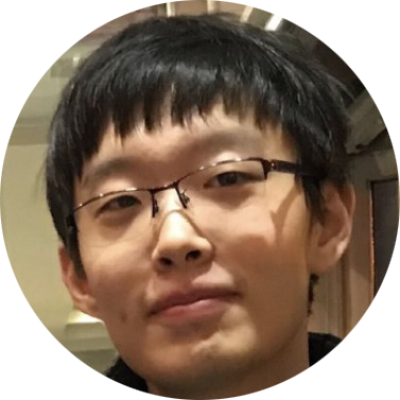
Yanbo Wang
DNA fluorescence in situ hybridization [DNA FISH] allows for visualization of specific DNA sequences inside the cells, so it is a powerful tool for studying chromatin conformations and protein-genomic DNA interactions. Conventional DNA FISH requires global genome denaturation by high temperature, which is very harsh and may disrupt some heat-labile structures. To overcome this limitation, I developed a physiological-temperature DNA FISH method called genome oligopaint via local denaturation FISH [GOLD FISH]. GOLD FISH uses an enzymatic approach to locally denature genomic DNA, avoiding the harsh treatment in conventional DNA FISH. GOLD FISH can efficiently label both repetitive and nonrepetitive DNA sequences in cultured cells and tissue sections, allowing for studying chromatin conformational changes and cancer-relative copy number variations. In addition, GOLD FISH has single-nucleotide sensitivity, which can detect pathological point mutations and base-editing events in pathological samples. Taken together, the method I developed in the Dr. Taekjip Ha’s lab can facilitate both basic research and clinical diagnosis.
Questions & Answers
Why did you choose Johns Hopkins for your work? Johns Hopkins has strong faculty in biology and medicine, and sufficient funding to support researchers here. Also, the collaborative environment and supportive staff at Johns Hopkins ensure that researchers can work efficiently. Therefore, I chose to pursue my Ph.D. degree at Johns Hopkins. What does receiving this award mean to you personally and professionally? Do you have any connection with the particular award you received? It is a great honor to be chosen to receive the Michael A. Shanoff Award. Personally, it motivates me to continue my career in scientific research. Professionally, it is a recognition of my Ph.D. work and can help me to become an independent investigator. What contributed to your project’s success? (Special skills, interests, opportunities, guidance, etc.) I think the opportunity to do research in the laboratory of my thesis adviser, Dr. Taekjip Ha, contributed the most to my project’s success. Dr. Ha has been very supportive, and he encouraged me to think creatively. I was always allowed to explore new things and have the perfect amount of independence to develop my project. Dr. Ha’s unique scientific insights also contributed a lot to the project’s success. In his lab, I gained important experimental skills and built confidence in tackling scientific questions as an independent investigator. What thoughts do you have about Young Investigators’ Day itself, as a celebration of the roles students and fellows play in research at Hopkins? I think Young Investigators’ Day is highly valuable because it can motivate young scientists to make important discoveries and give a chance to learn other awardees’ work. What has been your best/most memorable experience while at Hopkins? I think the moment that my hypothesis got validated by experiments is the best memory for me. What are your plans over the next year or so? Graduating, looking for faculty positions, etc.? I plan to finish my Ph.D. training and become a postdoctoral researcher in 2022. Tell me something interesting about yourself that makes you unique. Do you have any special hobbies, interests or life experiences? I volunteered to help homeless animals. I will continue to make contributions in improving the quality of life of homeless animals.